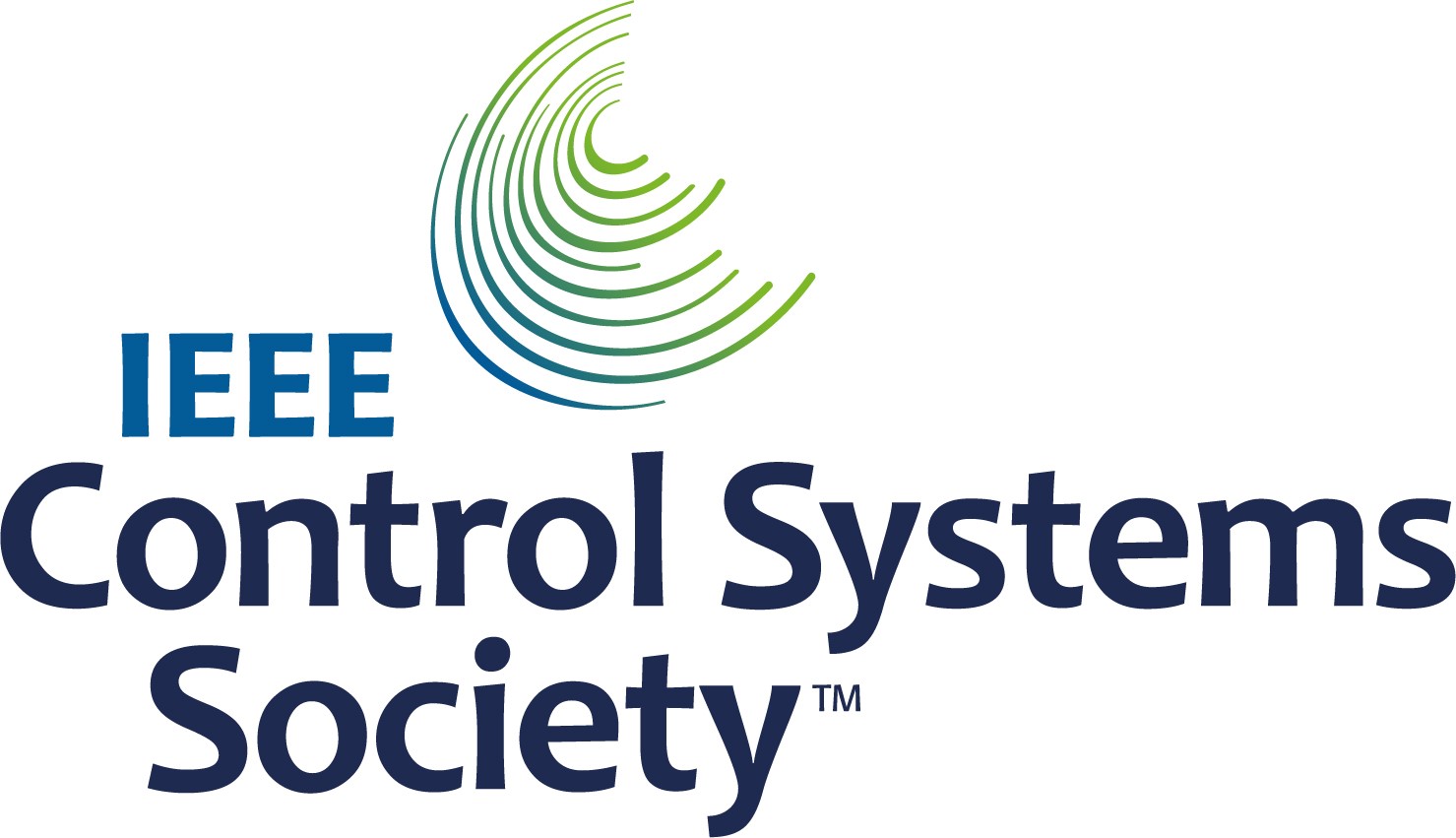NCCR Symposium Day 2 - Socially responsible Automation (part of CSS Day 2022)
Zoom: https://us02web.zoom.us/j/83244998047

What is this symposium about?
This symposium will feature an outstanding line-up of world-wide experts in the field who will present their results and answer questions in a panel discussion. Each part of the workshop will be followed by a reception concluding the day, and individual meetings between the speakers and researchers will be arrange during the speakers' stay.
The symposium will be live streamed on Zoom.
 This symposium is also part of the CSS Day 2022 organised by the IEEE Control Systems Society. More information about this event can be found here.
This symposium is also part of the CSS Day 2022 organised by the IEEE Control Systems Society. More information about this event can be found here.
Symposium program
14:00 - 14:20: Welcome and introduction by Giancarlo Ferrari Trecate & John Lygeros
14:20 - 15:00: "Cyber-Physical-Human Systems and Social Responsibility" by Anuradha Annaswamy
15:00 - 15:40: "Feedback, Dynamics, and Safety in Machine Learning Systems" by Sarah Dean
15:40 - 16:10: Coffee break
16:10 - 16:50: "A karma economy for socially efficient and equitable autonomy" by Emilio Frazzoli, presented by Andrea Censi
16:50 - 17:30: "Developing Socially Responsible Rules of the Road: Justice, Utility and Vulnerability in AV Decision-Making" by David Shaw
17:30 - 18:30: Panel discussion
18:30 - 20:00: Apéro
About the Speakers
- Dr. Anuradha Annaswamy (MIT) - Cyber-Physical-Human Systems and Social Responsibility
Talk Abstract: Over the past few decades, the cyber-footprint, in terms of sensing, communication, computation, and control, has been steadily increasing in all sectors, leading to Cyber-Physical Systems (CPS). Increasingly, many CPS are leading to interactions with humans, leading to Cyber-Physical-Human Systems (CPHS). Examples of CPHS abound in transportation, both in ground and in air, in energy such as power grids, and in robotics. The connections between humans and CPS in a general CPHS are intricate, varied, and complex. The nascent field of CPHS has begun to explore the role of humans in the analysis and synthesis of safe, resilient, and efficient large-scale systems.
Typical goals in CPHS involve resource allocation and optimization. Current solutions have not explicitly addressed issues related to social responsibility, or issues of fairness and inequities of collective populations. While behavioral models of humans and socio-technical systems are beginning to be explored in CPHS, how they can be integrated with socially responsible goals have not been investigated. The needs and requirements of consumers, customers, end-users, and the underlying society need to be considered as an integral part of the overall performance. In this talk, some of the fundamental challenges in the development of socially responsible CPHS will be addressed. Two examples are discussed in detail, related to energy justice in power grids and dynamic pricing in urban mobility, and tools for successful CPHS that are socially responsible are explored.
Biography: Dr. Anuradha Annaswamy is Founder and Director of the Active-Adaptive Control Laboratory in the Department of Mechanical Engineering at MIT. Her research interests span adaptive control theory and its applications to aerospace, automotive, propulsion, energy systems, smart grids, and smart cities. She has received best paper awards (Axelby; CSM), as well as Distinguished Member and Distinguished Lecturer awards from the IEEE Control Systems Society (CSS) and a Presidential Young Investigator award from NSF. She is a Fellow of IEEE and IFAC. She is the recipient of the Distinguished Alumni award from Indian Institute of Science for 2021. She is the author of a graduate textbook on adaptive control, co-editor of two vision documents on smart grids and two editions of the Impact of Control Technology report, and a coauthor of two National Academy of Sciences, Engineering, and Medicine Committee reports related to electricity grids. She served as the President of CSS in 2020.
- Prof. Sarah Dean (Cornell University) - Feedback, Dynamics, and Safety in Machine Learning Systems
Talk Abstract: When machine learning systems are deployed, they can affect the distribution on which they operate. Such endogenous distribution shifts arise due to the impact of decisions on individuals, and these effects can cause issues like polarization and bias amplification. I will discuss models of impact in two settings: biased-assimilation preference dynamics in personalized recommendation, and participation dynamics in the presence of multiple learners. Then, taking a broader perspective, I will discuss the implications of these dynamics and how we might bring the perspective of "systems safety" to machine learning systems that interact with people.
Biography: Sarah is an Assistant Professor in the Computer Science Department at Cornell. She recently completed a PhD in EECS from UC Berkeley and was a postdoc at the University of Washington. Sarah is interested in the interplay between optimization, machine learning, and dynamics, and her research focuses on understanding the fundamentals of data-driven control and decision-making. This work is grounded in and inspired by applications ranging from robotics to recommendation systems.
- Dr. Andrea Censi (ETH Zurich) (replacing Prof. Emilio Frazzoli) - A karma economy for socially efficient and equitable autonomy
Talk Abstract: An important objective of automation is to ensure a fair and socially responsible allocation of shared resources, while pursuing the efficiency and robustness of the system. Until now, the vast majority of incentive schemes used to encourage socially responsible resource utilization have been monetary.
In this talk, we argue that the use of money in engineering systems is fundamentally flawed. The sensitivity of users to money can vary widely for factors outside the system (e.g., income and inter-generational wealth accumulation), and therefore monetary schemes implicitly favor the wealthy.
We introduce the concept of a self-contained karma economy as an alternative incentive scheme. In a karma economy, each user is endowed with tokens (called karma) that are non-tradable for money, and the users repeatedly obtain or yield a preferential service in exchange of karma.
We lay the mathematical foundations that ensure that such an economy is well-defined and the strategic behavior of its users can be analyzed. We then characterize the performance of the karma economy in numerical case studies, showcasing that it achieves socially efficient outcomes in a self-contained, and thereby equitable, manner.
Biography: Andrea Censi is a senior researcher with the Department of Mechanical and Process Engineering at ETH Zürich. He obtained a Ph.D. in Control and Dynamical Systems from Caltech. He worked in industry in the fields of self-driving cars and robotics education. He is interested in robotics, co-design of complex systems, and creating human-compatible autonomy.
- Dr. David Shaw (University of Basel) - Developing Socially Responsible Rules of the Road: Justice, Utility and Vulnerability in AV Decision-Making
Talk Abstract: The relative vulnerability of pedestrians and the safety advantages enjoyed by car users have major implications for ethical decision-making by autonomous vehicles. Some regulations, such as the new U.K. Highway Code’s “hierarchy of road users” already acknowledge the greater vulnerability of certain road users in their rules of the road. However, the asymmetries between pedestrians and car users also fundamentally alter the ethical context in which autonomous vehicles will operate. This talk provides an analysis and discussion of these issues with a focus on justice and vulnerability.
Biography: Dr. David Shaw is Senior Researcher at the Institute for Biomedical Ethics at the University of Basel and Associate Professor of Health Ethics & Law at the Department of Health, Ethics and Society within the Care and Public Health Research Institute at Maastricht University. He graduated with an MA in Philosophy and English Literature from the University of Glasgow in 1999, and an MSc in Philosophy from the University of Edinburgh in 2001. He obtained his PhD at the University of Lausanne in 2005 and went on to work in the philosophy department at the University of St Andrews and the medical school at the University of Glasgow. In 2011 he obtained a Masters in Medical Law. He is interested in all areas of bioethics, but particularly public health and research ethics, the ethics of emerging technologies and shared decision making.
